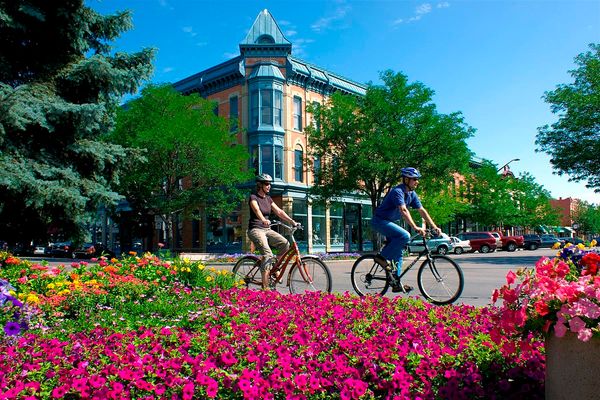The oft-daunting shift from residing in a house to occupying an apartment signifies a substantial change in one's lifestyle. Whether motivated by financial considerations, a yearning for simplicity, or the allure of city life, this transition demands careful consideration and thorough planning.
Here, we’ll offer up some practical insights that will ensure a seamless and stress-free transition.
Understanding Security Deposits
One of the fundamental aspects of moving into an apartment - which might be unfamiliar to those accustomed to homeownership - is comprehending the notion of a security deposit. This upfront payment serves as a safety net for landlords, ensuring that tenants uphold their responsibility of caring for the property. Should any damages occur or if there is a breach in lease terms, landlords have the option to utilize the deposit to cover associated costs.
Why is a Security Deposit Important?
- Protection for landlords: It compensates for any outstanding rent or damages that surpass normal wear and tear
- Tenant commitment: By paying a deposit, tenants demonstrate their dedication to maintaining the apartment
Determining the Amount of Security Deposit
The specific amount varies widely based on factors such as location, property value, and local regulations. For instance, while certain states impose limitations on how much can be charged, others grant landlords complete discretion – yes, you read that correctly! A Texas security deposit, for example, can be whatever amount the landlord deems fair! However, it is essential to arrange this matter prior to signing any agreements with dotted lines.
Return of Security Deposit
Landlords typically refund security deposits after the lease expires, deducting any necessary expenses, such as repairs or unpaid rent. It’s crucial to meticulously document the condition of your new apartment, both when moving in and when moving out, to ensure fairness regarding potential deductions.
Downsizing Your Belongings

Living in a house often affords individuals with ample space – walk-in closets, basements, attics, and sprawling yards. Conversely, apartments come with spatial constraints.
Effective Steps for Downsizing:
- Item Inventory: Create a comprehensive list of all belongings and categorize them based on necessity
- Prioritization: Retain essential items and those with sentimental value. Be honest about what can be lived without
- Sell, donate, or recycle: Utilize garage sales, online platforms, or local charities to divest unnecessary items
Embracing Multi-functionality
In an apartment, every square foot holds significance. This necessitates employing creativity when it comes to furniture and design choices.
- Dual-purpose furniture: Consider options such as sofa beds, expandable dining tables, and beds with storage compartments underneath
- Wall-mounted designs: Implement floating desks, fold-up tables, and wall racks to maximize floor space and achieve a clutter-free aesthetic
Adjusting Your Lifestyle
Life in an apartment may require bidding farewell to certain house-oriented activities while adopting new habits conducive to apartment living.
- Communal living: Shared walls demand heightened awareness of noise levels. Respect quiet hours and invest in noise-canceling headphones or rugs to mitigate sound transmission
- Amenities: Many apartments offer facilities like gyms, pools, or common areas. Take full advantage of these offerings!
- Outdoor space: While private backyards might not be available, explore communal green spaces or nearby parks to satisfy the need for outdoor experiences
Financial Considerations
While houses entail property taxes, lawn maintenance costs, and potential homeowner association fees, apartments come with their own set of expenses. Before making your decision, it's essential to think about the pros and cons of buying versus renting. This way, you can ensure your choice aligns perfectly with your financial goals and lifestyle.
- Security deposits: As discussed in greater detail above, apartments often require a one-time deposit equivalent to a month's rent
- Renters' insurance: Unlike homeowner's insurance, renters' insurance covers personal belongings within an apartment
- Utility bills: Some apartments include utilities in the rent, while others do not. It’s important to clarify this information in advance before making any commitments
Dealing with Maintenance
One of the advantages of apartment living is reduced maintenance responsibilities.
- Repairs: In most apartment setups, management takes care of major repairs. Familiarize yourself with the process for requesting such repairs
- Housekeeping: With a smaller space, cleaning requirements are typically reduced. However, regular tidying up is necessary to prevent clutter accumulation
Adapting to Parking and Transportation

Houses often provide garages or driveways, but apartments present a different scenario.
- Assigned parking: Check if your apartment offers designated parking spots, and be aware of any additional charges associated with them
- Public transportation: If moving to a city center, consider utilizing public transportation or adopting eco-friendly methods like biking
Reimagining Home Security
While houses often require extensive security measures, such as alarm systems and outdoor cameras, apartments frequently come equipped with built-in security features.
- Front desk and guards: Many apartment complexes employ 24/7 security personnel for resident safety
- Intercom systems: Before gaining access to the building, visitors may be required to pass through an intercom check or other access control system
- Neighborhood Watch: Close-knit apartment communities often establish informal watch groups; it’s advisable to join or be aware of these initiatives for added peace of mind
Embracing the Community
Apartment living offers a distinct sense of community compared to suburban houses.
- Community events: Participate in meetups, BBQs, or other social gatherings organized by the apartment community
- Networking opportunities: Your next-door neighbor could become a potential business partner, friend, or someone who shares common interests; foster connections within the community
Final Thoughts
Transitioning from a house to an apartment involves more than simply downsizing living space; it necessitates reimagining one's entire lifestyle. While initial challenges may arise, approaching apartment living with the right mindset can transform it into a fulfilling, comfortable, and enriching experience. Remember that it’s not just about the physical space you inhabit, but how you choose to live within that space that counts the most.






